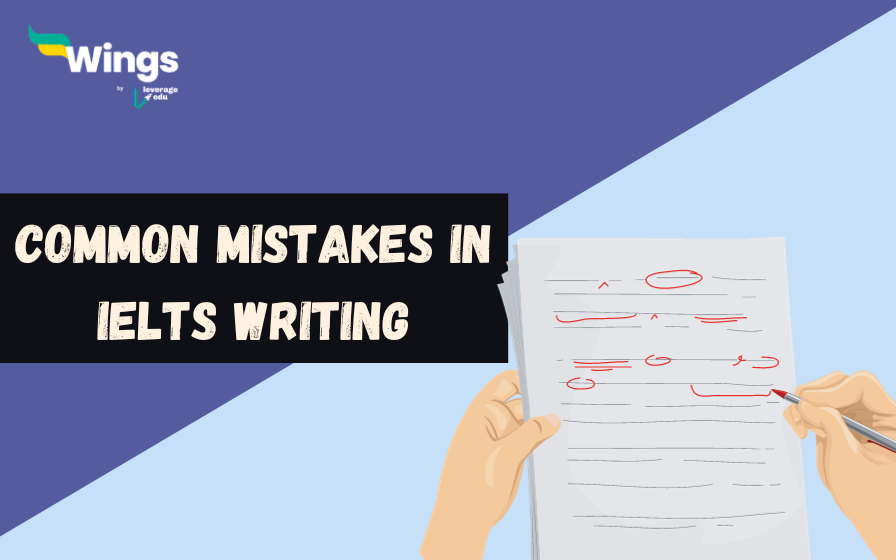
Do you want to have a high Writing score on the IELTS test? Come on, get to know the types of questions on the writing test and effective strategies to prepare yourself
The writing test is often considered the most difficult part of the IELTS test series. To be able to do this test well, participants must be able to pay attention to and understand detailed information and translate their ideas into written form, complete with correct use of grammar and punctuation. Apart from that, this writing test has a limited time and several specific requirements. It is not surprising that quite a lot of prospective IELTS test takers are worried about their preparation for this writing test . If you are going to take the IELTS test, you need to prepare yourself carefully and understand what is expected from this writing test .
-
Get to know the structure of the Writing Test on IELTS
In the IELTS writing test , you will be asked to write two pieces of writing in a total of one hour. In the first part, you will be asked to describe and summarize written information in the form of diagrams, graphs, tables or charts. The descriptive sentence must be written in standard format and have a writing length of more than 150 words. You will be given 20 minutes to complete this first part of the assignment.
In the second part of the writing test , you are required to understand a particular problem, argument or point of view. You must write your thoughts in essay form with a length of more than 250 words. You must write structured information about whether you agree or disagree with a problem, identify a solution or determine your point of view about whether the topic proposed in the test is beneficial or detrimental.
The first and second parts of the IELTS writing test will be assessed using four key criteria based on the IELTS guidelines and assessment scale (ranging from 0-9). One thing you need to remember, the first part of the assignment has half the weight of the second part of the assignment. Therefore, you can increase the practice portion for the second part of the test.
-
What are the questions in the IELTS Writing Test?
The following is an illustration of the IELTS Writing Test question form :
-
First Part Test
For the first part of the IELTS writing test , you will be asked to answer a question that contains one of the following types of charts or diagrams:
- Bar charts
- Table
- Line graph
- Pie charts
- Map
- Process flow diagram
- A combination of the things above
You will be asked to make a formal report regarding the information written in the chart/graph/diagram. For example, you get a question containing bar chart data on the number of students studying in England in a certain period, as well as data regarding their student status ( full-time or part-time ). You must be able to create reports that present main information, make comparisons, and draw possible conclusions from the data.
-
Second Part Test
In this section, you are asked to write an essay on a given topic. The following are some topics that are usually raised in the IELTS test:
- Community issues
- Education
- Technology
- Sport
- Work
- Transportation
- Environment
- Art
- Culinary/food
- Business
- Communication
In this second part, you will be asked to write an essay with a minimum of 250 words and use one of the following essay formats:
- Opinion essay
- Pros and cons essay
- The essay contains solutions
- Direct question essay
- Discussion essay
As an illustration, for example, you are given an essay topic that asks whether children raised from poor families have better abilities in facing life’s challenges than children from rich people. You will be asked to write an essay expressing agreement or disagreement with the statement.
-
What is the scoring system for the IELTS Writing Test ?

By understanding the assessment system, you can organize your strategy and preparation in facing this test. The score on the IELTS writing test will be assessed based on the following criteria:
- Coherence and cohesion (connection between elements in a syntactic or discourse structure)
- Do you use paragraphs consistently and appropriately?
- Is there a main idea in each paragraph?
- Does each paragraph and idea relate to each other?
- Do test takers use linking sentences and cohesive language?
- Grammar
- Do the test takers demonstrate their understanding in terms of understanding grammar structures ?
- Do participants use tenses correctly?
- Are the punctuation used correct?
- Is the sentence structure coherent and without errors?
- Vocabulary
- Do test takers use a variety of words?
- Do test takers use unusual word choices or synonyms for simple words?
- Are all the words written correctly?
- Are the words used appropriate to the context?
- Target achievement
- Do the test takers understand the task and are able to fulfill the criteria in full?
- Are the test takers able to give a clear picture?
- Have the test takers completed the tasks accurately?
- Are test takers able to explain an opinion or argument in a clear position?
- Are the test takers able to show the important elements in their argument?
In the first and second part of the task, test takers will get a score between 0-9. Each score will be added up, then divided by four. The results of this calculation will become the final score on the writing test. As stated previously, the second part of the assignment has twice the weight of the assignment in the first assignment. If you score 7.0 in the first part and 8.0 in the second part, then your overall score on the IELTS writing test will be 8.0.
-
Increase your practice and develop your writing technique
After understanding what the IELTS writing test looks like , you can start developing and practicing your writing techniques according to these guidelines. Even though in general, these two parts require more or less the same skills , there are several differences that must be paid attention to.
For assignment part one, you can start practicing by paying attention to the following key skills and tips:
- Practice the ability to paraphrase and briefly summarize information. This will help you achieve a better vocabulary score.
- Practice writing a paragraph containing a summary, and include some more complex sentences so that your grammar score will increase.
- Learn and practice using synonyms in the right context.
- Avoid trying to write down anything you see. Remember, you only need to write important facts in this section.
- Practice using a four-paragraph format. The first paragraph contains an introduction , the second paragraph contains an overview of the main idea, the third paragraph must contain an outline of the main key features , and the last paragraph must be able to explain other key features and produce a conclusion.
- Practice using grammar carefully to explain data and don’t make writing that is too complicated.
Meanwhile, to practice part two of the IELTS writing test , there are several approaches or tips that you can consider:
- Practice identifying the type of question being asked. For example, is this a question that needs to be written in the form of an opinion or discussion?
- Allocate your time to plan your answer and design what you want to write. You can use as much as 10 minutes for this.
- Make sure you have a paragraph that contains an introduction , the main points in each paragraph, and a conclusion
- Always aim to be able to write down relevant information and display the skills that the assessment team is looking for.
- Learn various vocabulary that is widely used in IELTS topics.
- Convey arguments and opinions clearly
- Analyze questions using keywords and sentences that match the instructions
- Practice your skills in making connecting sentences and various language devices that show cohesiveness.
- Using practice examples and answers from previous IELTS questions
By understanding the structure of the writing test and practicing a lot, your chances of achieving your target IELTS score will definitely be greater. Don’t forget to look for complete information about the IELTS test before the test day. You can also find out what IELTS score you need for your dream college major with Visaxtra Oh yes, you can also look for information and get lots of IELTS preparation tips from the IDP Indonesia site . This information will definitely be useful for your preparation for the IELTS test!







